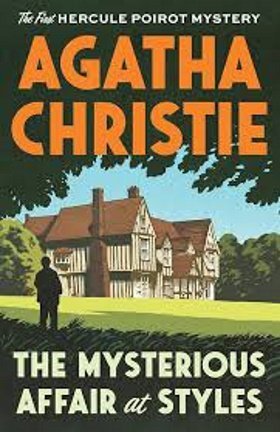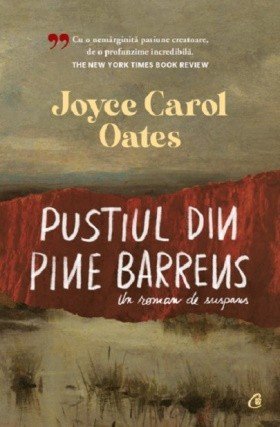I followed his instructions, taking up my position by the baize door, and wondering what on earth lay behind the request. Why was I to stand in this particular spot on guard? I looked thoughtfully down the corridor in front of me. An idea struck me. With the exception of Cynthia Murdoch’s, everyone’s room was in this left wing. Had that anything to do with it? Was I to report who came or went? I stood faithfully at my post. The minutes passed. Nobody came. Nothing happened.
It must have been quite twenty minutes before Poirot rejoined me.
“You have not stirred?”
“No, I’ve stuck here like a rock. Nothing’s happened.”
“Ah!” Was he pleased, or disappointed? “You’ve seen nothing at all?”
“No.”
“But you have probably heard something? A big bump—eh, mon ami?”
“No.”
“Is it possible? Ah, but I am vexed with myself! I am not usually clumsy. I made but a slight gesture”—I know Poirot’s gestures—“with the left hand, and over went the table by the bed!”
He looked so childishly vexed and crest-fallen that I hastened to console him.
“Never mind, old chap. What does it matter? Your triumph downstairs excited you. I can tell you, that was a surprise to us all. There must be more in this affair of Inglethorp’s with Mrs. Raikes than we thought, to make him hold his tongue so persistently. What are you going to do now? Where are the Scotland Yard fellows?”
“Gone down to interview the servants. I showed them all our exhibits. I am disappointed in Japp. He has no method!”
“Hullo!” I said, looking out of the window. “Here’s Dr. Bauerstein. I believe you’re right about that man, Poirot. I don’t like him.”
“He is clever,” observed Poirot meditatively.
“Oh, clever as the devil! I must say I was overjoyed to see him in the plight he was in on Tuesday. You never saw such a spectacle!” And I described the doctor’s adventure. “He looked a regular scarecrow! Plastered with mud from head to foot.”
“You saw him, then?”
“Yes. Of course, he didn’t want to come in—it was just after dinner—but Mr. Inglethorp insisted.”
“What?” Poirot caught me violently by the shoulders. “Was Dr. Bauerstein here on Tuesday evening? Here? And you never told me? Why did you not tell me? Why? Why?”
He appeared to be in an absolute frenzy.
“My dear Poirot,” I expostulated, “I never thought it would interest you. I didn’t know it was of any importance.”
“Importance? It is of the first importance! So Dr. Bauerstein was here on Tuesday night—the night of the murder. Hastings, do you not see? That alters everything—everything!”
I had never seen him so upset. Loosening his hold of me, he mechanically straightened a pair of candlesticks, still murmuring to himself: “Yes, that alters everything—everything.”
Suddenly he seemed to come to a decision.
“Allons!” he said. “We must act at once. Where is Mr. Cavendish?”
John was in the smoking-room. Poirot went straight to him.
“Mr. Cavendish, I have some important business in Tadminster. A new clue. May I take your motor?”
“Why, of course. Do you mean at once?”
“If you please.”
John rang the bell, and ordered round the car. In another ten minutes, we were racing down the park and along the high road to Tadminster.
“Now, Poirot,” I remarked resignedly, “perhaps you will tell me what all this is about?”
“Well, mon ami, a good deal you can guess for yourself. Of course you realize that, now Mr. Inglethorp is out of it, the whole position is greatly changed. We are face to face with an entirely new problem. We know now that there is one person who did not buy the poison. We have cleared away the manufactured clues. Now for the real ones. I have ascertained that anyone in the household, with the exception of Mrs. Cavendish, who was playing tennis with you, could have personated Mr. Inglethorp on Monday evening. In the same way, we have his statement that he put the coffee down in the hall. No one took much notice of that at the inquest—but now it has a very different significance. We must find out who did take that coffee to Mrs. Inglethorp eventually, or who passed through the hall whilst it was standing there. From your account, there are only two people whom we can positively say did not go near the coffee—Mrs. Cavendish, and Mademoiselle Cynthia.”
“Yes, that is so.” I felt an inexpressible lightening of the heart. Mary Cavendish could certainly not rest under suspicion.
“In clearing Alfred Inglethorp,” continued Poirot, “I have been obliged to show my hand sooner than I intended. As long as I might be thought to be pursuing him, the criminal would be off his guard. Now, he will be doubly careful. Yes—doubly careful.” He turned to me abruptly. “Tell me, Hastings, you yourself—have you no suspicions of anybody?”
I hesitated. To tell the truth, an idea, wild and extravagant in itself, had once or twice that morning flashed through my brain. I had rejected it as absurd, nevertheless it persisted.
“You couldn’t call it a suspicion,” I murmured. “It’s so utterly foolish.”
“Come now,” urged Poirot encouragingly. “Do not fear. Speak your mind. You should always pay attention to your instincts.”
“Well then,” I blurted out, “it’s absurd—but I suspect Miss Howard of not telling all she knows!”
“Miss Howard?”
“Yes—you’ll laugh at me——”
“Not at all. Why should I?”

























